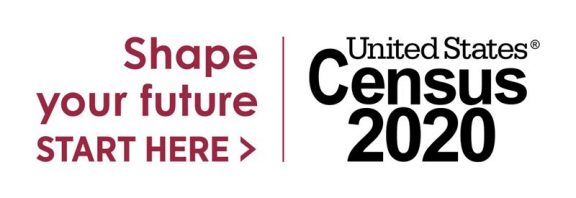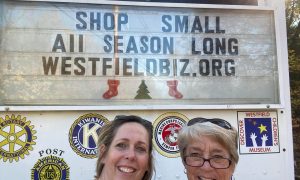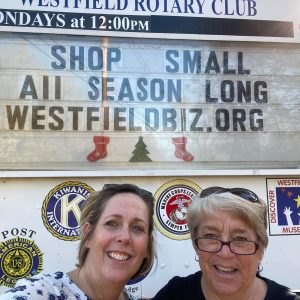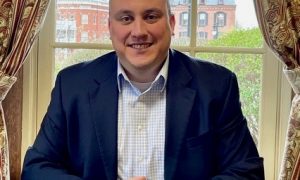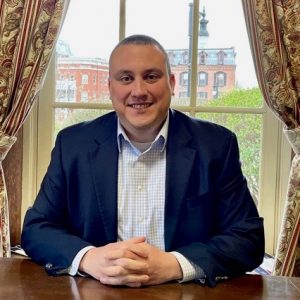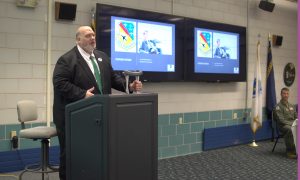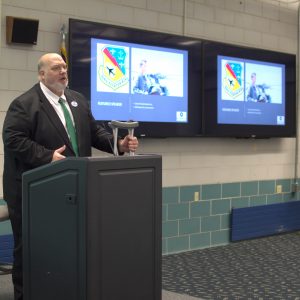WESTFIELD-While April 2020 seems a long way off, the U.S. Census Bureau is already working with civic leaders and organizations across the country to start planning efforts to ensure every citizen is counted in the 2020 Census.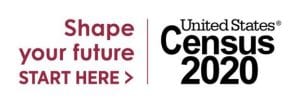
In the city, Kate Phelon, executive director of the Greater Westfield Chamber of Commerce, recently met to discuss logistics with David Castonguay, partnership specialist with the New York Regional Census Center, and Georgia Lowe, the U.S. Census Bureau partnership coordinator for Massachusetts.
“They are reaching out to several organizations to be partners,” said Phelon.
Phelon noted “partners” may include elected officials, colleges and universities, school districts, libraries, community organizations and associations, media outlets, and local businesses.
“We have knowledge of our communities and are trusted voices,” said Phelon.
Every 10 years since 1790, the U.S. Constitution has mandated that the United States count its population. By next April, households will receive an invitation to participate in the census. U.S. citizens will have three options to respond – online, by phone, or by mail. When completing the census, you will note where you are living on April 1.
“The goal of the 2020 Census is to count everyone once and only once in the right place to ensure a complete and accurate count as mandated by the U.S. Constitution,” said Ethel Harris-Shepard, media specialist, New York Regional Census Center. The New York field division covers New York, New Jersey, Puerto Rico, and all of the New England states.
“Partners are trusted local leaders in communities who can help us reach out and motivate everyone, including various hard-to-count groups in their community to participate in the census,” said Harris-Shepard. “Partnership specialists work with partners in businesses, civic and nonprofit organizations, schools and the general public.”
On April 1, the U.S. Census Bureau will mark Census Day with events across the country.
Phelon added she is “planting the seed” this fall through the Chamber’s social media avenues by educating members about census initiatives including the U.S Census Bureau’s “mission” currently to hire thousands of census takers, recruiting assistants, office staff, and supervisory staff. Persons interested in applying for the temporary jobs with competitive wages and flexible schedules must be at least 18 years of age, have a valid Social Security number, and be a U.S. citizen.
Phelon said she is encouraging Chamber members to spread the message of the importance of the 2020 Census because the data that is collected is “very important.”
“Census data determines how $675 billion in federal funding is spent on infrastructure, programs and services each year,” she said, noting that is just one example of how important it is to complete the census.
According to the U.S. Census Bureau, the census can shape many aspects of one’s community, from adding new roads and highways to ease overcrowded commutes, to a new school to address overcrowded classrooms. Also, decennial census data determines representation in Congress, the redrawing of district boundaries, and how funds are spent for hospitals and emergency services.
“The Chamber of Commerce partners across the country are critical in helping us inform the public that it’s easy to respond to the census, and that it is safe because responses are protected by law (Title 13 US Code) and responses can’t be used for any purpose other than data,” said Harris-Shepard.
Harris-Shepard noted most importantly, organizations like the Chamber help inform the public of the importance of the Census and that their response shapes how public funds are spent for schools, fire and emergency services and health care for one’s community.
“Their responses gives them a voice in shaping how more than $675 billion in federal funding is distributed to local communities,” she added.
Phelon noted that U.S. Census Bureau representatives are focusing on several key partnership initiatives, ranging from American Indian and Alaska native programs and community, state and local networks, to faith-based community outreach and foreign born/immigrant programs. Additionally, partnerships are being formulated with higher education programs, lesbian, gay, bisexual and transgender outreach groups, and the U.S. Census Bureau’s own “complete count committees.”
Complete count committees allow community members to play a key role in raising awareness, answering questions, and encouraging their local residents to participate in the census.
Businesses in particular are a key segment of the population that the U.S. Census Bureau is reaching out to in an effort to create partnerships. Partnership specialists note that the 2020 Census’ detailed demographic information holds exceptional value for companies – helping them make informed decisions about expansion, developing new programs, hiring, mitigating risk and increasing one’s return on investment.
A mobile response program is also in the planning stages, offering opportunities for community event organizers to consider including a 2020 Census feature as part of their program.
For more information on the 2020 Census, to become a “partner,” or to apply for a temporary job, visit https://2020census.gov.
“Census partner organizations also help us let the public know that we are hiring hundreds of thousands of people across the country to serve as census takers,” said Harris-Shepard. “We’re looking for applicants who know their community and can help us make sure everyone is counted.”

